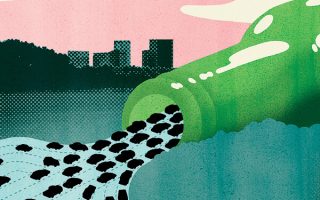What is Narcissistic Abuse? If you doubt yourself after being criticized or smear campaigned against by a gaslighting Narcissist who tells you that you are at fault for being abused or who denies hurting you, chances are you have experienced it firsthand.
Doubt, confusion, feeling crazy, being perpetually frustrated while striving to communicate civilly with another person or group, experiencing bouts of disassociation or PTSD, and more are signs and symptoms you are suffering at the hands of a devious social predator who is likely to be narcissistic at best — or at worst, they may have something like NPD (Narcissistic Personality Disorder) or some other form of Cluster B.
Word search rituals can help Narcissistic abuse victims more easily transition from a state of learned and conditioned helplessness to a position of mental, spiritual, and emotional health.
By reminding themselves daily that the Abuser who abused them did so due to them having a predatory personality disorder — not because they were in any way deserving of active or passive targeting — victims have a chance to look back on traumatic incidents with a fresh set of eyes. The process helps victims more efficiently process grief related to past issues.
The stipulative definition of the term “Narcissistic Abuse” as it relates to Self-Help, the study of deviant behavior, and Forensic Psychology is as follows. The website Deconstructing Jezebel points out, “Aside from physically hurting you, including destroying your personal items (particularly those items that are important to you – and your narcissist knows which ones they are), one of the narcissist’s biggest weapon is his mouth.”
Narcissistic abuse can be physical, mental, social, spiritual, religious, emotional, financial, professional, or sexual. But the most obvious abuse comes as verbal abuse, noting that people who are narcissistic by nature tend to have an innate ability to figure out a person’s biggest insecurities in life and they will rip them into flesh wounds of the metaphoric sense faster than a wolf in sheep’s clothing can make a sly smile before digging its teeth into a lamb shank for supper.
Narcissistic Rage — a real thing — typically comes after a person with NPD or “Narcissistic Personality Disorder” decides they are in some way justified to pitch a temper tantrum. The Abuser will either covertly or overtly take offense at some perceived annoyance, rival, or wrong.
From that point forward, the Narcissistic Injury drives the psychology of the Narcissist to do great harm. As DJ says, “Sarcasm, insults, viciousness, and hate as well as twisting of any ‘facts’ that may be stated during the outburst are to be expected from malignant narcissism.”
A narcissistic person tends to view every social interaction competitively rather than collaboratively. For this reason alone, they tend to attack other people offensively while claiming to be defending themselves.
The trouble is, typically the people they choose to attack they do so on the sly or situationally. Most targets never see it coming and are left reeling after the narcy person baits, attacks, or provokes then blames the victim or feigns being the aggrieved party.
The Narcissist, based on these perceptions of Narcissistic Injury provocation, chooses to engage in routine acts of verbally aggressive and oftentimes physically intimidating or violent rages. The person who is the direct target of their abuse is known at the Target or Scapegoat, noting victims who are made the target of a narcissist’s rage may or may not have done something intentionally to provoke or otherwise antagonize the Abuser. However, most times, the person picked on by the Narcissist is not even aware of what they have done to offend.
It is in that state of learned helplessness — a place where victims are targeted for something they know not what and are not allowed to leave a debate or the Narcissist’s perceived competition — where the darkest part of Narcissistic Abuse really begins.
Confused, shocked, and terrorized or socially victimized targets who have been attacked out of the blue or are pervasively hunted begin to show signs of having not only PTSD (related to single abuse incidents) but C-PTSD (a condition that results from repeated exposure to traumatizing incidents).
C-PTSD is a conditioned PTSD response common to kidnap or hostage victims. It tends to come part and parcel with variations of Cognitive Dissonance, Reverse Projection, and Stockholm Syndrome. It is also incredibly common for people living in domestic abuse settings to have, for people to develop who work in hostile workplace environments, and for soldiers, law enforcement, and other military professionals who are exposed to or witness graphic violence and “fight or flight” stress on a routine basis.
If you live or work in an abusive environment, be sure to let your doctor and mental health care workers know you are at high risk of developing C-PTSD. Doing a little health check on yourself to look for signs of suffering from persistent abuse can mean the difference, truly, between living a life that’s tough and reclaiming the power of health.
Printing helpful literature about Narcissistic Abuse and C-PTSD to take with you to leave for your healthcare provider to review when attending any doctor’s appointments is advised, as is discussing your situation honestly and openly with a Domestic Violence Advocate. As always, if you are in fear for your life or concerned about a person who is likely to be a threat to themselves or others, contact 911 or your local authorities.
Document all incidents of abuse including date, time, and the names and badge numbers of any person from your local authority agencies in case they need to be subpoenaed about the incident in the future.
Learn how to go gray rock to depersonalize abuse and strive to go Low Contact to NO CONTACT as quickly as possible with any person suspected of having a Cluster B personality disorder like NPD.
The amount of time and heartache you will save yourself alone simply by learning to observe (rather than react) when and if they try to get your attention is immense. Read something about Narcissistic Abuse every day to add to your knowledge bank and before you know it, you will be able to spot and avoid narcissistic predators.
Psychology Today even reports the following as the “right way” to deal with a Narcissist. They say, “If you have been the target of a severe narcissist, severing ties may be necessary. Others may never understand why you had to make this choice. Without exposure, a capacity for insight, concern, and curiosity, they cannot perceive the destructiveness. It may make you feel alone, but so be it. Do what you have to do.”
The source goes on to note, “Once you are removed and safe, thoughts about what happened- why, how, makes no sense, they do not care about the damage they caused, etc,- may haunt you. You may feel damaged or tainted because you are now saddled with the memories and feel you cannot get them out of your head. You can. Here’s how: Develop the ability to change your thoughts or your relationship to your thoughts.”
Most people who switch from victim mentality to survivor mentality with regard to Narcissistic Abuse use a wide variety of methods to help them cope. “There are many options such as Cognitive Behavioral Therapy, Mindfulness-Based Therapy, Acceptance, and Commitment Therapy…” claims PT. Zen Buddhist meditation, Yoga, and simply talking or crying it out in a safe space with people who can validate you are not being oversensitive or overly dramatic to feel hurt can truly help the most.
Narcissistic Abuse causes extreme anxiety in humans who are targeted. It also damaged collateral damage victims like children and other witnesses.
Children of all ages and adult humans can show signs of having C-PTSD after witnessing even one traumatizing incident. Imagine what growing up in a household watching or suffering Narcissistic Abuse day in and day out for a lifetime does to the mind and body of sensitive and otherwise fully psychologically and emotionally normal people.
Narcissists, by definition, have a limited capacity to feel or experience empathy. Many Narcissists have a sadistic streak as well to their nature.
Most have extremely low social and emotional intelligence (or “EQ). High levels of intelligence (as it relates to academia) is not required; one can have a relatively low IQ and still lead a fulfilling, connected social life that reflects psycho-social cognitive comprehension.
EQ is not IQ dependent, meaning you can have a 180 IQ and still have the emotional intelligence quotient of a six-year-old child — which, by the way, is the average emotional age of most Narcissists. One of their defining hallmarks is they typically are short-term thinkers who always think in terms of self-promotion first.
Unable to introspect effectively due to psychological and biological deficiencies processing concepts empathetically, they are the people who can be counted on to manufacture chaos rather than to promote the social success of groups.





